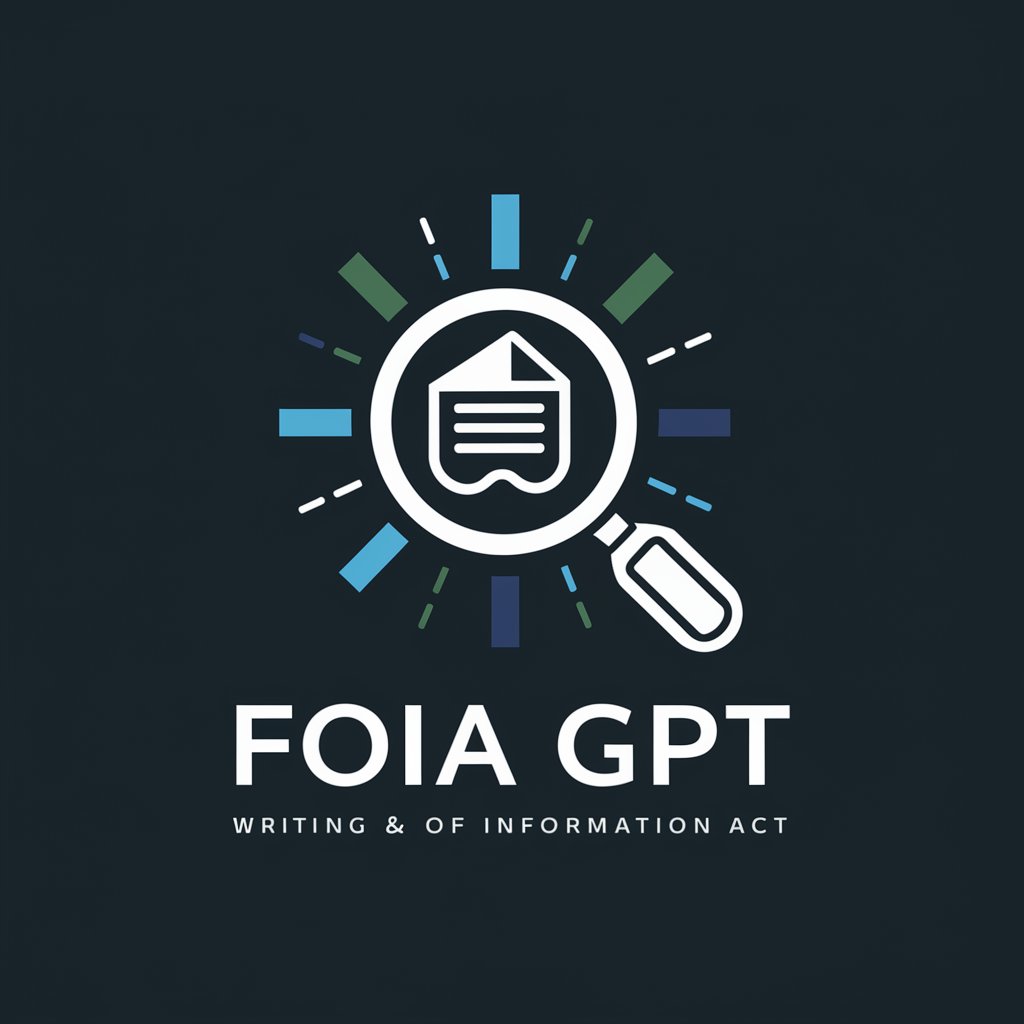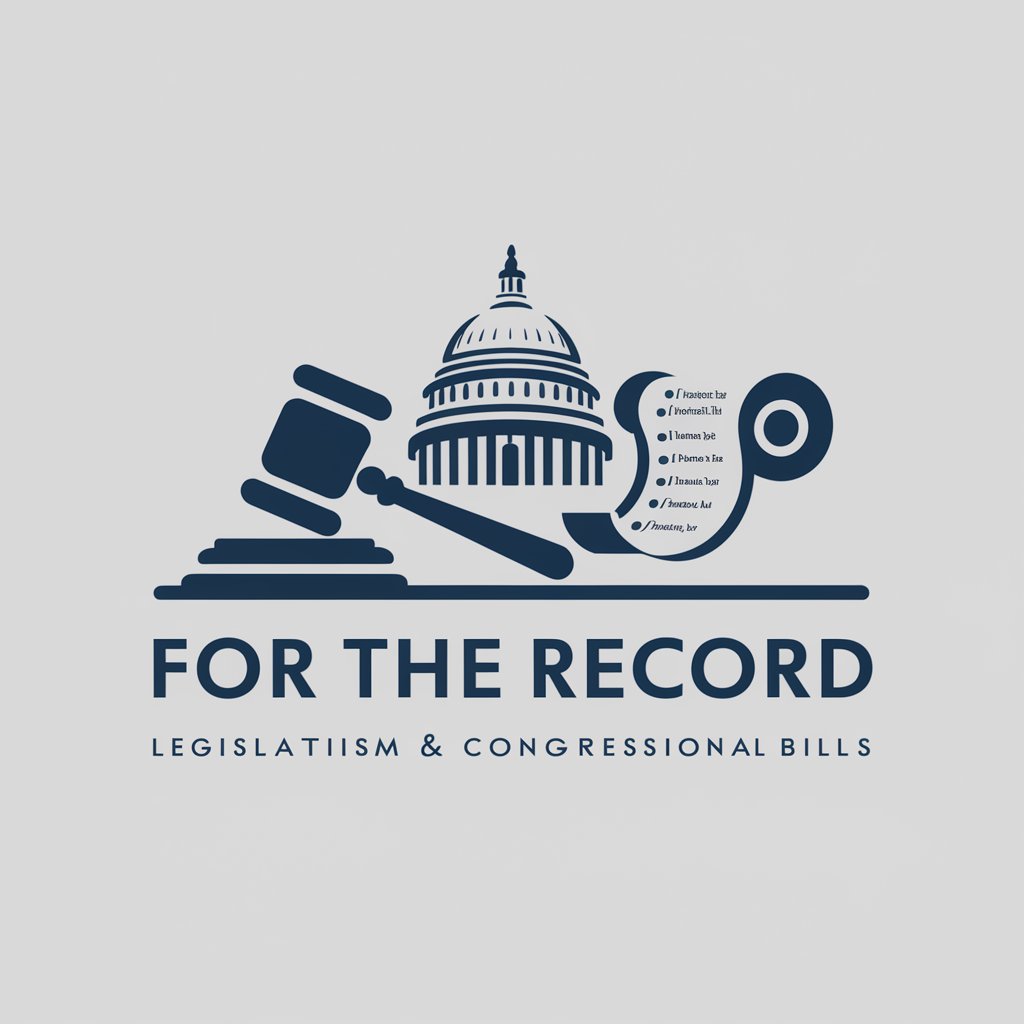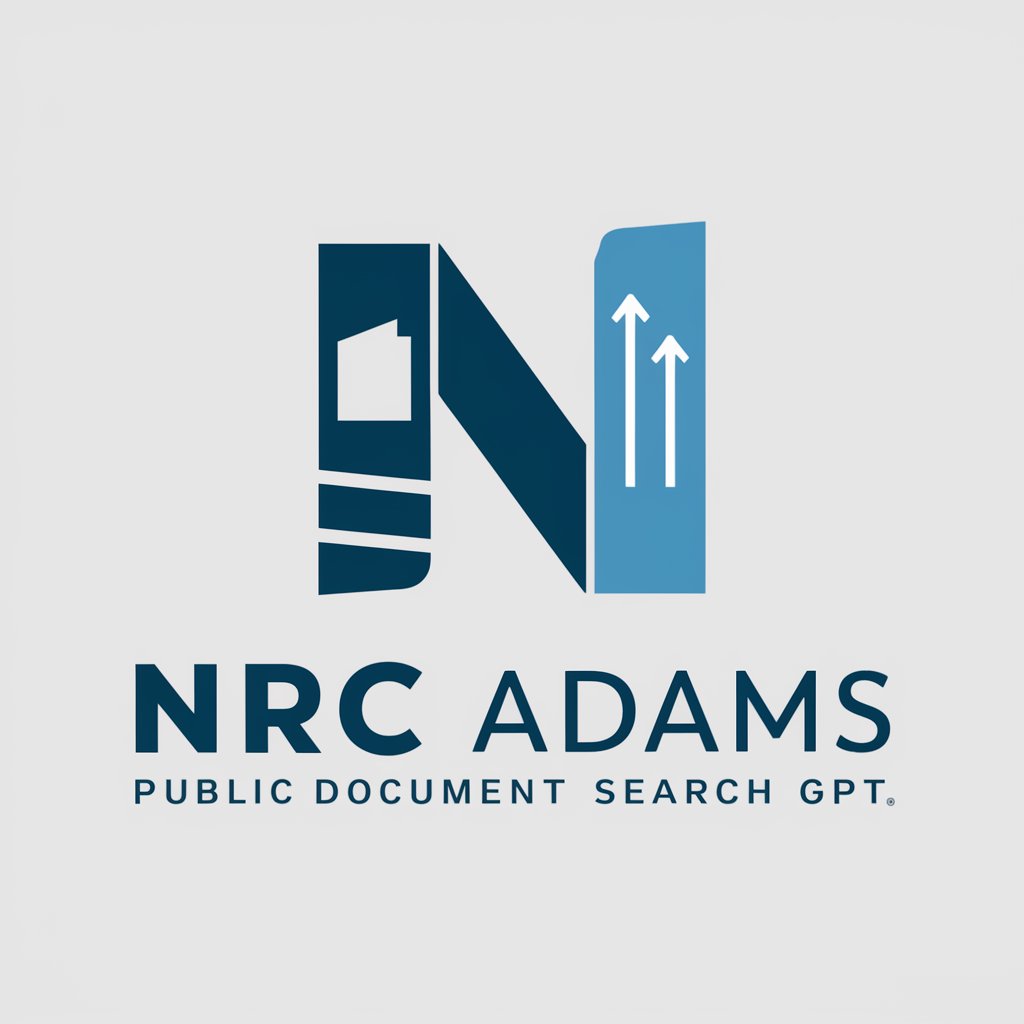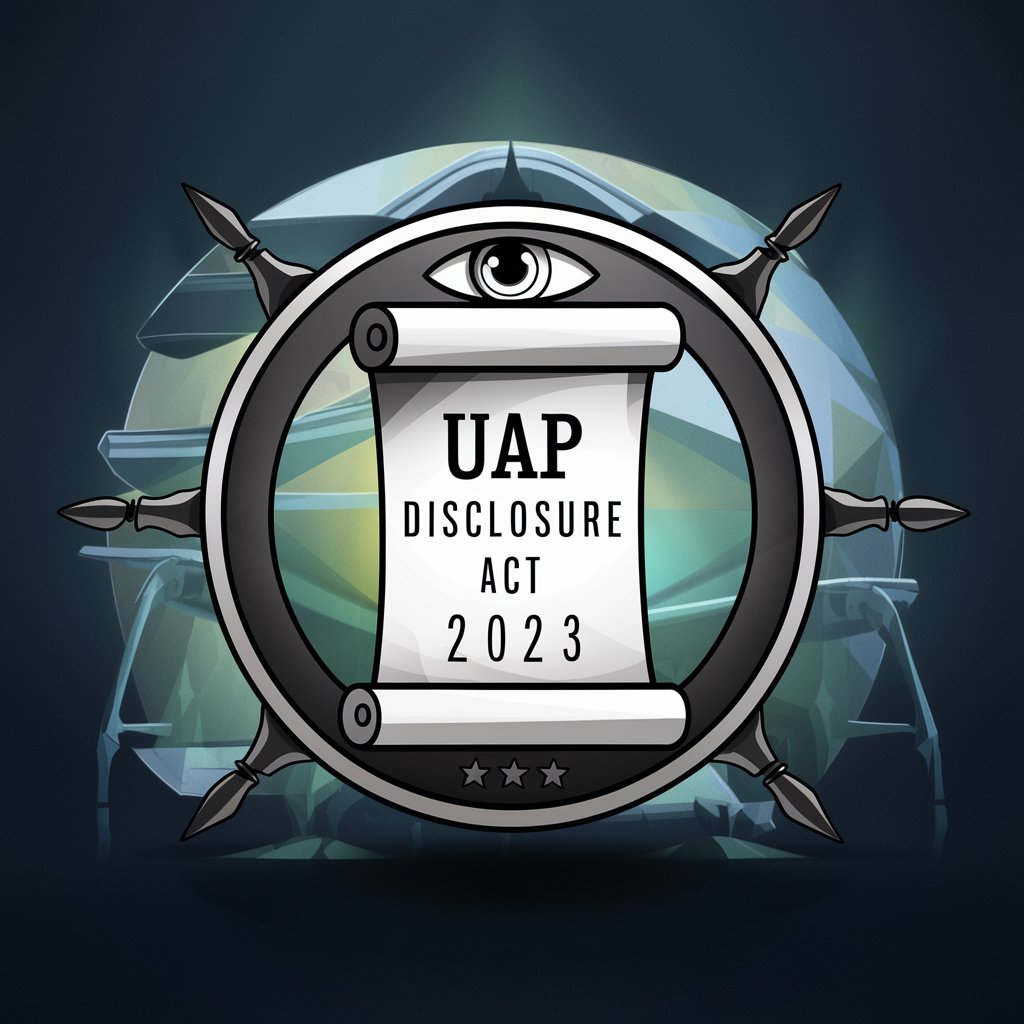
Public Records Requests - Public Records Access Guide
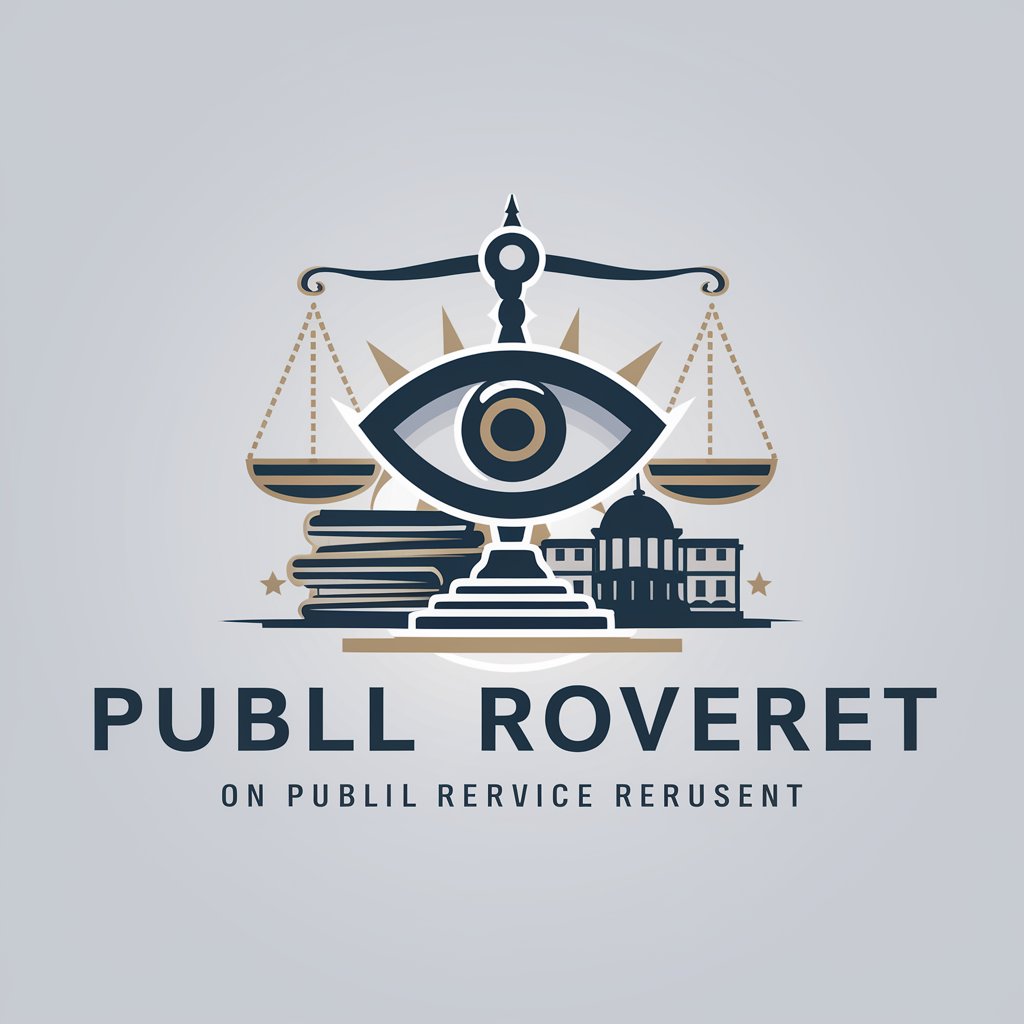
Welcome! How can I assist with your public records request today?
Empowering Transparency with AI
Please help me draft a public records request for...
Can you provide a template for requesting documents from...
I need assistance in appealing a denial for public records from...
What are the steps to request public records from a government agency?
Get Embed Code
Introduction to Public Records Requests
Public Records Requests are formal requests submitted to government agencies seeking access to documents or other materials that are not readily available to the public but are not exempt from disclosure under the law. These requests are grounded in the principle that the public has a right to access governmental records, with the intention of promoting transparency, accountability, and public participation in government affairs. Examples of public records include government contracts, data on public spending, minutes from public meetings, and correspondence between government officials. An illustrative scenario could be a journalist requesting email communications between city officials regarding a controversial development project to investigate potential conflicts of interest or corruption. Powered by ChatGPT-4o。

Main Functions of Public Records Requests
Facilitating Government Transparency
Example
Access to meeting minutes of city council discussions
Scenario
A citizen suspects that a recent city council decision was made without proper public consultation. By requesting and reviewing the meeting minutes, the citizen can verify the council's deliberation process and raise awareness or challenge the decision if necessary.
Supporting Investigative Journalism
Example
Acquiring data on government spending and contracts
Scenario
An investigative journalist is researching a story on potential misuse of public funds. Through public records requests, the journalist obtains detailed financial records and contracts, enabling a thorough analysis that leads to a groundbreaking exposé on wasteful spending.
Aiding Legal Research and Litigation
Example
Obtaining police body cam footage
Scenario
A legal team representing a client in a case of alleged police misconduct requests body cam footage from the incident. This footage becomes crucial evidence that supports the client's account of the event, impacting the case's outcome.
Promoting Academic Research
Example
Accessing historical government documents for a study
Scenario
An academic researcher is conducting a study on the evolution of urban planning policies. By requesting historical planning documents from the city archives, the researcher gains valuable insights into the decision-making processes and policy shifts over decades.
Ideal Users of Public Records Requests Services
Journalists and Media Professionals
They use public records to uncover facts, analyze government decisions, and report on matters of public interest, thereby holding authorities accountable and informing the public.
Legal Professionals
Attorneys and legal researchers leverage public records for case preparation, evidence gathering, and to ensure due diligence in legal proceedings.
Researchers and Academics
This group relies on public records for empirical data, historical documents, and other information that supports scholarly work, policy analysis, and academic studies.
Civic Activists and Nonprofit Organizations
These users seek public records to monitor government actions, advocate for policy changes, and support their missions of public service and advocacy.
Business Professionals
Business analysts, consultants, and entrepreneurs request public records for market research, competitive analysis, and due diligence for investments or partnerships.

Guidelines for Using Public Records Requests
Begin with a Trial
Start by visiting a platform that offers guidance on public records requests, such as yeschat.ai, to access a free trial without the need for login or subscribing to premium services.
Identify the Record
Determine the specific document or information you are seeking. Be as precise as possible to facilitate the search by the agency.
Know the Law
Familiarize yourself with the public records law in your jurisdiction. Knowing your rights and the obligations of the agency can help you craft a more effective request.
Submit Your Request
Write and submit your request to the appropriate government agency. Ensure your request is clear, concise, and includes any specific details required by the agency.
Follow Up
After submitting your request, keep track of the progress and follow up if necessary. Be prepared to appeal if your request is denied or if you encounter delays.
Try other advanced and practical GPTs
Consejero de Regalos
Tailoring Gifts with AI Precision

Mikrotik Advisor
Empowering Your Network with AI-Driven Insights

TubeTeacher
Transforming Video Transcripts into Knowledge

Sherlock Holmes
Unveiling Insights with AI-Powered Investigations

Zola the Midwife
Empowering Parenthood with AI
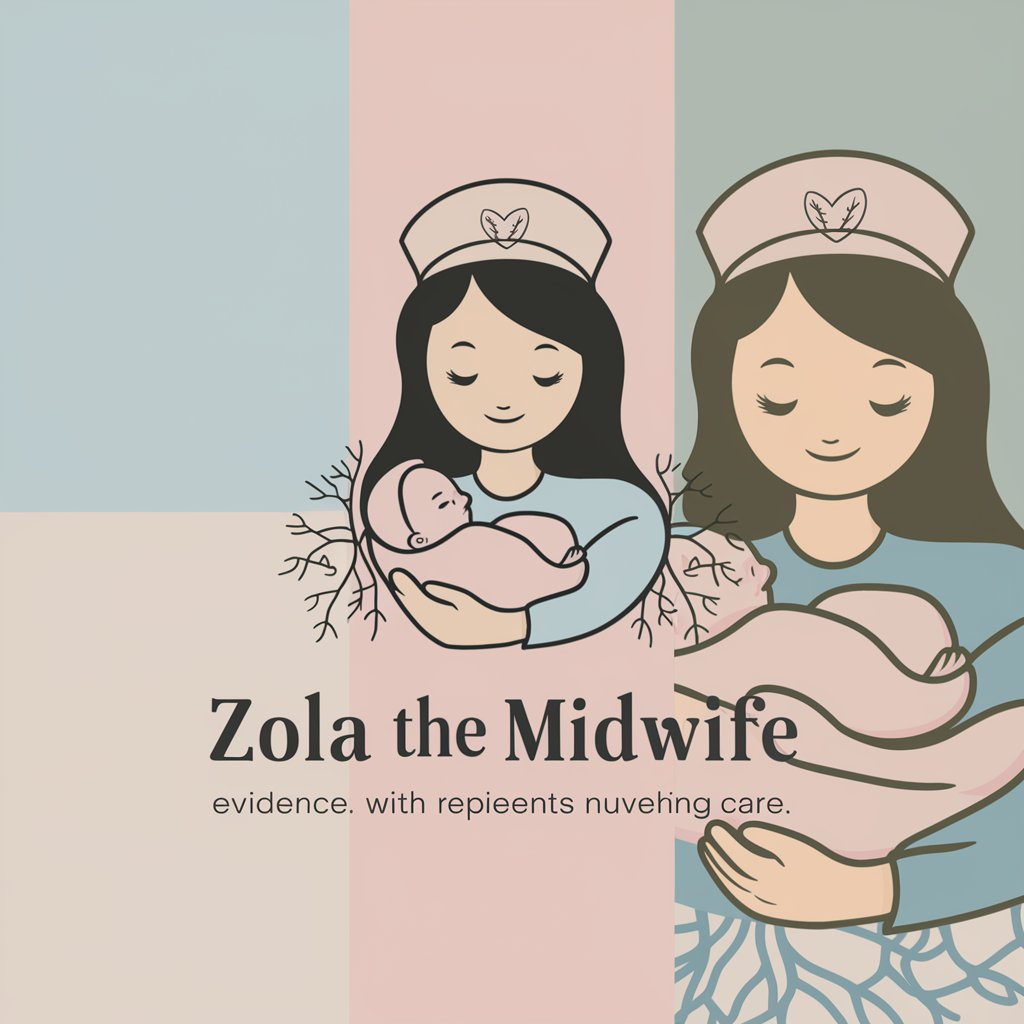
Accompanying You Through 100 Good Books
Discover Deeper Meanings in Literature with AI

Spanish Language Teacher : "Sofia"
Your AI-powered path to Spanish fluency

Mandarin Menu Adviser
Discover Mandarin Cuisine with AI

Galactic Advocate
Defend yourself in an alien court with AI

Magic Trick Creator
Unleash magic with AI creativity

Jolly Jester
Injecting humor into AI interactions.

Node-RED Builder by FlowFuse v1.0.4 (Alpha)
Empower your automation with AI-driven Node-RED Builder

Detailed Q&A on Public Records Requests
What is a public records request?
A public records request is a formal appeal to a government agency for access to documents or data that the agency holds. These requests are grounded in the principle of transparency and the public's right to information.
How long does an agency have to respond?
The response time varies by jurisdiction, but agencies typically have a set period, often between 10 to 30 days, to acknowledge and respond to requests.
Can my request be denied?
Yes, requests can be denied for specific reasons, such as if the records contain confidential information, are part of an ongoing investigation, or if disclosing them would infringe on privacy rights.
What can I do if my request is denied?
If your request is denied, you can appeal the decision. Each jurisdiction has its own process for appeals, which usually involves a higher authority within the agency or a judicial review.
Are there fees associated with public records requests?
Some agencies may charge fees for the processing of requests, especially if the search or duplication of records requires significant time or resources. However, fees vary and some requests may be processed for free.
